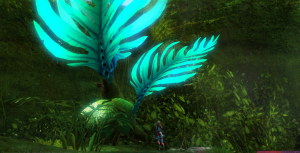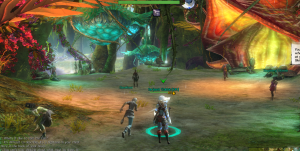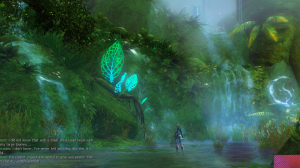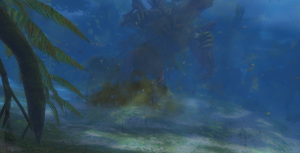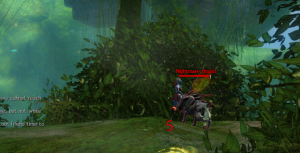As stated by Justin Reich, “[we] need to account for our collective human tendency to allow the worst of ourselves to emerge under the anonymity of the Internet.” Anonymity is a fascinating concept as it allows individuals to be whoever they want to be and say whatever they want to say, without having to be accountable for our actions. This is a metaphor for life; give man a mask, and he will be more himself than he has ever been.
Guild Wars 2 allows cooperation, yet it rarely encourages it. What is interesting is that although we have the option to play as a team, many of us chose to play alone. Perhaps that’s a metaphor for our individuality. I have yet to join a guild or embark on group quests with other players, however, I have found that when I attempted to engage in chat with other players, many of them did not address my concerns or help guide me in the right direction. I was happy that I did not receive any offensive comments from other players, which was a preconceived notion that other individuals had mentioned to me multiple times. However, I did find that I had to reach out to other players multiple times in order for me to be taken seriously. In my opinion, I do believe that individuals who react with offensive comments and toxicity online do so for reasons that go beyond the game and have more to do with themselves as individuals. In this case, I do agree with Reich’s statement about “regular people having a bad day” (Reich). Toxicity also exists because some gamers turn to the virtual world to release their stress and emotions.
I made use of out-of-game resources for direction and explanation of things in the game; I was very confused at first. I thought the individuals who created these resources were helpful members of the community as Guild Wars 2 does not really come with instructions. It’s difficult to pick up at first because so much is going on aesthetically and large amounts of information are thrown at the players at the start. For regular gamers, it’s most likely a lot easier to understand in a smaller time frame. While some may consider going out of the game ‘cheating’, I strongly think that it depends on the context and what the information being attained is. If it’s information on how to level up faster, or how to complete the mission, then it could be deemed as cheating and it takes the fun out of the game. However, if it’s information on the game functions and how to play the game, which is what I had searched up, I do not think that that is cheating.
In person, I’m usually quite forthcoming and social. However, in the last year, I feel as though that has decreased significantly and I stopped putting myself out there as much. I participated in quite a few chats with other players from across the globe and enjoyed it. It encouraged me to start putting myself out there again. I would also participate in those types of conversation in person, I think I just needed to be reminded of that fact.
When asking other players for help, some responded positively and helped out, while others responded negatively and with toxicity. I guess that’s why the ‘report a player’ function exists. When I was asked for help on the group chat by other players, I attempted to help as much as I could because I strongly believe in building each other up. One player also helped me flag a target, which I thought was sweet. When reading annoying or provocative comments in chat, I was a little upset just because I do not think that that is necessary. I feel like it just takes away from the fun of the game and creates a negative atmosphere for those being attacked verbally or cyber-bullied. In cases like this, I think that the ‘report a player’ function is useful as it encourages a positive notion of community and a safe atmosphere.
As Lilah Rose Ivy advances in Guild Wars 2, I’ve found that while cooperating with other players may be beneficial, it is not necessarily needed, nor does it make a significant impact on the success of the mission. This is interesting as Guild Wars 2 is a game that is known to be played worldwide, specifically within friend groups who Skype and play at the same time. While that is counterintuitive, perhaps it’s also to say that we, as individuals, enjoy using this mask to create new personas for ourselves and project them onto those that we love. I found that my effective anonymity allowed me to be bigger and better, and while it was tempting to be less patient due to the competitiveness nature of the game, I actually feel like I learned to be even more patient and understanding.
-B
Work Cited
Simon Parkin, “A Video-Game Algorithm to Solve Online Abuse”, MIT Technology Review, September 14, 2015.
